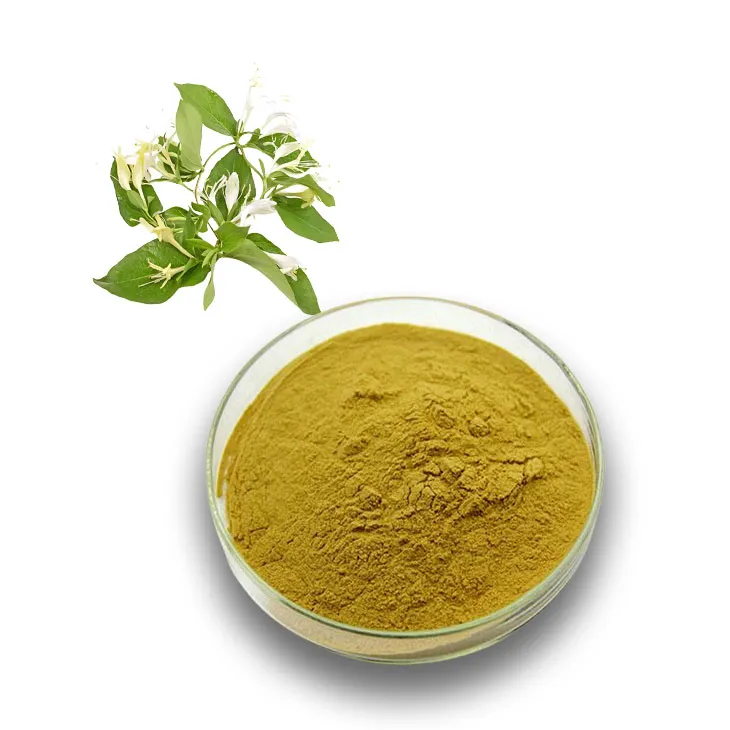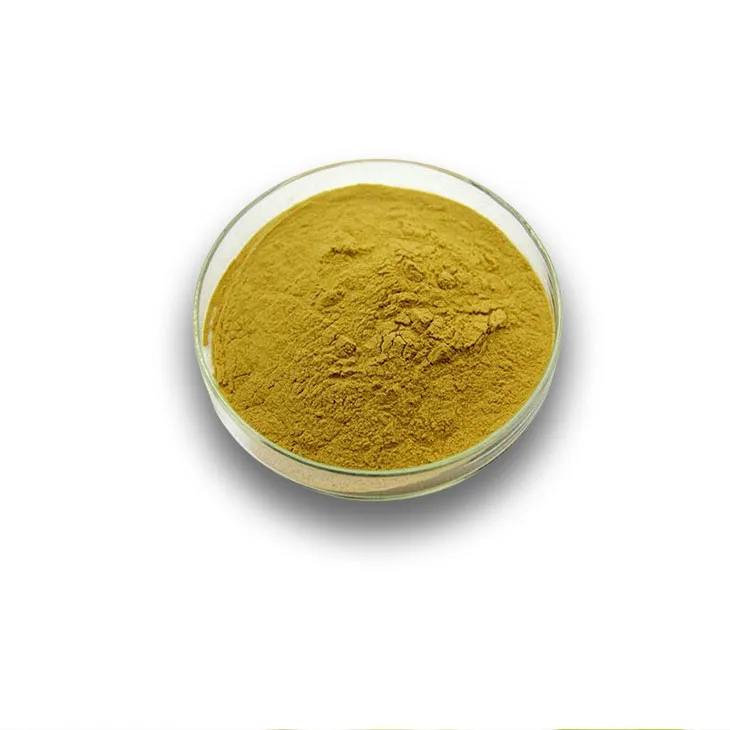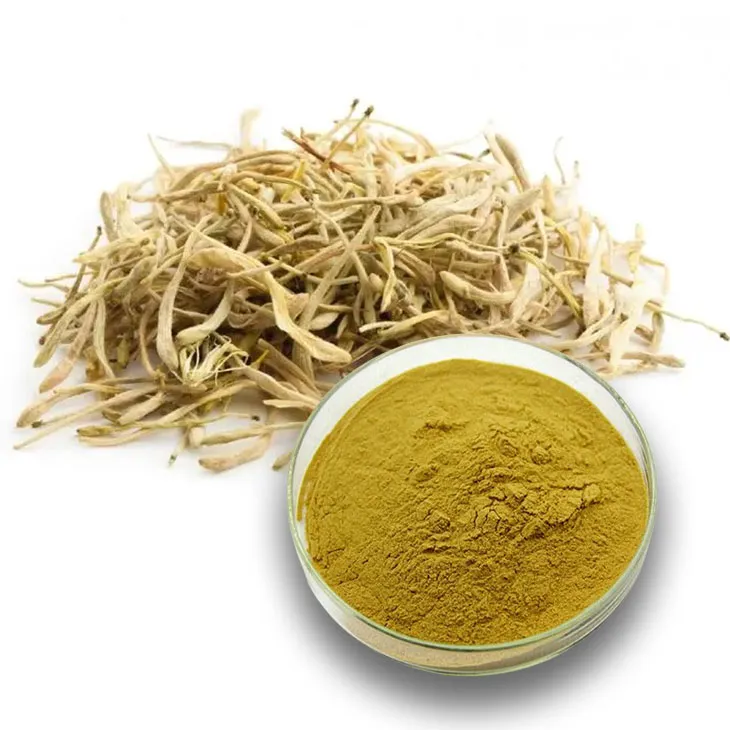- 0086-571-85302990
- sales@greenskybio.com
Use honeysuckle pollen? Make sure you source from sustainable suppliers!
2024-12-20

1. Introduction
Honeysuckle Pollen has been an item of interest in various fields. It has a long history of use, especially in traditional medicine and more recently, in the development of potential beauty products. However, as the awareness of environmental protection and sustainable development grows, it is crucial to consider the source of Honeysuckle Pollen. In this article, we will delve into why it is essential to source Honeysuckle Pollen from sustainable suppliers.

2. The Versatility of Honeysuckle Pollen
2.1 In Traditional Medicine
Honeysuckle pollen has been used in traditional medicine for centuries. It is often associated with its anti - inflammatory and antibacterial properties. In some traditional medical systems, it is used to treat various ailments such as sore throats, fevers, and skin infections. For example, in certain Asian traditional medicine practices, honeysuckle pollen is made into a decoction or tincture to relieve symptoms of respiratory infections.2.2 In Beauty Products
The potential of honeysuckle pollen in the beauty industry is also being explored. It is believed to have antioxidant properties that can help in anti - aging and skin rejuvenation. Some beauty product developers are looking into incorporating honeysuckle pollen into creams, serums, and masks. For instance, it may be used to improve skin texture, reduce wrinkles, and enhance skin's natural glow.
3. The Pressure on Natural Resources
With the increasing demand for honeysuckle pollen in different industries, there is a significant pressure on natural resources. Honeysuckle plants are not limitless, and over - harvesting can lead to a decline in their population.
- Unregulated collection can disrupt the natural growth cycle of honeysuckle plants. If too much pollen is collected at a wrong time, it can prevent the plants from reproducing properly.
- The habitat of honeysuckle plants may also be affected. Over - harvesting can lead to the degradation of the areas where they grow, which in turn can have a negative impact on other plant and animal species that co - exist in the same ecosystem.

4. The Importance of Sustainable Sourcing
4.1 Ensuring Long - Term Availability
By choosing sustainable suppliers, we can ensure the long - term availability of honeysuckle pollen. Sustainable suppliers follow practices that allow honeysuckle plants to regenerate and thrive. They may have a system in place to limit the amount of pollen harvested each season, ensuring that there are enough plants left to reproduce. This way, we can continue to enjoy the benefits of honeysuckle pollen in the future.4.2 Protecting the Environment
Sustainable sourcing also plays a crucial role in protecting the environment where honeysuckle grows.- It helps to preserve the ecosystem. Honeysuckle plants are part of a complex web of life. They provide food and shelter for various insects, birds, and small mammals. By protecting the honeysuckle plants, we are also safeguarding these other species.
- It can contribute to soil conservation. Honeysuckle plants have roots that help hold the soil in place. When the plants are sustainably managed, the soil quality can be maintained, reducing the risk of erosion.

5. How to Identify Sustainable Suppliers
5.1 Certification and Standards
One of the key ways to identify sustainable suppliers is to look for relevant certifications and standards. For example, some environmental organizations may certify suppliers who meet certain criteria in terms of sustainable harvesting practices. These certifications can provide assurance that the supplier is following ethical and sustainable methods.5.2 Transparency in the Supply Chain
A sustainable supplier should be transparent about their supply chain. They should be able to provide information on where the honeysuckle pollen is sourced from, how it is harvested, and what measures they take to ensure sustainability. This transparency allows consumers to make informed decisions.5.3 Community Involvement
Suppliers that are involved in the local community are often more likely to be sustainable. They may work with local farmers or communities to ensure that the harvesting of honeysuckle pollen benefits the local economy while also protecting the environment. For example, they may provide training to local harvesters on sustainable harvesting techniques.6. The Benefits of Supporting Sustainable Suppliers
6.1 Ethical Consumption
When we support sustainable suppliers, we are engaging in ethical consumption. We are not only getting the product we need but also ensuring that it is sourced in a way that is fair to the environment and the people involved in the supply chain. This can give us a sense of satisfaction knowing that our purchase has a positive impact.6.2 Encouraging Sustainable Practices
By choosing sustainable suppliers, we are also encouraging more suppliers to adopt sustainable practices. As the demand for sustainably sourced honeysuckle pollen grows, more suppliers will be motivated to meet the market requirements. This can lead to a wider adoption of sustainable harvesting and sourcing methods across the industry.7. Challenges in Sourcing from Sustainable Suppliers
7.1 Cost
Sourcing from sustainable suppliers may sometimes be more expensive. Sustainable harvesting methods often require more time, labor, and investment. For example, suppliers may need to implement measures to protect the environment during the harvesting process, which can increase the cost. However, in the long run, the benefits of sustainable sourcing outweigh the higher cost.7.2 Limited Availability
Currently, there may be a limited number of sustainable suppliers of honeysuckle pollen. This can make it difficult for consumers to find a reliable source. However, as awareness grows, more suppliers are likely to transition to sustainable practices, increasing the availability.8. Conclusion
Honeysuckle pollen has great potential in various applications, but we must be mindful of how it is sourced. By choosing sustainable suppliers, we can protect natural resources, ensure the long - term availability of the pollen, and contribute to environmental protection. Although there are challenges in sourcing from sustainable suppliers, the benefits are significant. As consumers, we have the power to make a difference by demanding and supporting sustainably sourced honeysuckle pollen.
FAQ:
What are the applications of honeysuckle pollen?
Honeysuckle pollen has applications in traditional medicine and may also be used in potential beauty products.
Why is it important to source honeysuckle pollen from sustainable suppliers?
The demand for honeysuckle pollen can put pressure on natural resources. Sourcing from sustainable suppliers ensures its long - term availability, protects the environment where honeysuckle grows, and safeguards ecosystems and the wildlife that depends on it.
How can one identify a sustainable supplier of honeysuckle pollen?
One can look for suppliers who follow ethical harvesting practices, have proper certifications related to environmental protection and sustainable sourcing, and are transparent about their supply chain. They may also be involved in conservation efforts in the areas where honeysuckle grows.
What are the potential consequences of not sourcing honeysuckle pollen sustainably?
Not sourcing sustainably can lead to over - exploitation of honeysuckle plants, depletion of natural resources, damage to ecosystems, and a negative impact on the wildlife that depends on honeysuckle. It may also result in a shortage of honeysuckle pollen in the long run for various applications.
Are there any regulations regarding the sourcing of honeysuckle pollen?
There may be local, regional, or national regulations regarding the harvesting and trading of honeysuckle pollen. These regulations may be related to environmental protection, sustainable development, and ensuring the proper management of natural resources. However, the specific regulations can vary depending on the location.
Related literature
- Sustainable Sourcing of Botanical Ingredients: A Review"
- "Honeysuckle: Ecology, Conservation and Sustainable Use"
- "The Importance of Sustainable Suppliers in the Botanical Product Industry"
- ▶ Hesperidin
- ▶ citrus bioflavonoids
- ▶ plant extract
- ▶ lycopene
- ▶ Diosmin
- ▶ Grape seed extract
- ▶ Sea buckthorn Juice Powder
- ▶ Beetroot powder
- ▶ Hops Extract
- ▶ Artichoke Extract
- ▶ Reishi mushroom extract
- ▶ Astaxanthin
- ▶ Green Tea Extract
- ▶ Curcumin Extract
- ▶ Horse Chestnut Extract
- ▶ Other Problems
- ▶ Boswellia Serrata Extract
- ▶ Resveratrol Extract
- ▶ Marigold Extract
- ▶ Grape Leaf Extract
- ▶ blog3
- ▶ blog4
- ▶ blog5
-
Pure 85% Tomentil Extract.
2024-12-20
-
Peppermint Extract Powder
2024-12-20
-
Stevia Extract
2024-12-20
-
Bilberry Extract
2024-12-20
-
Pomegranate Extract
2024-12-20
-
Beetroot Powder
2024-12-20
-
Bayberry Extract
2024-12-20
-
Hawthorn Extract
2024-12-20
-
Nettle Root Extract
2024-12-20
-
Nettle leaf extract
2024-12-20
-
Beetroot juice Powder
2024-12-20





















